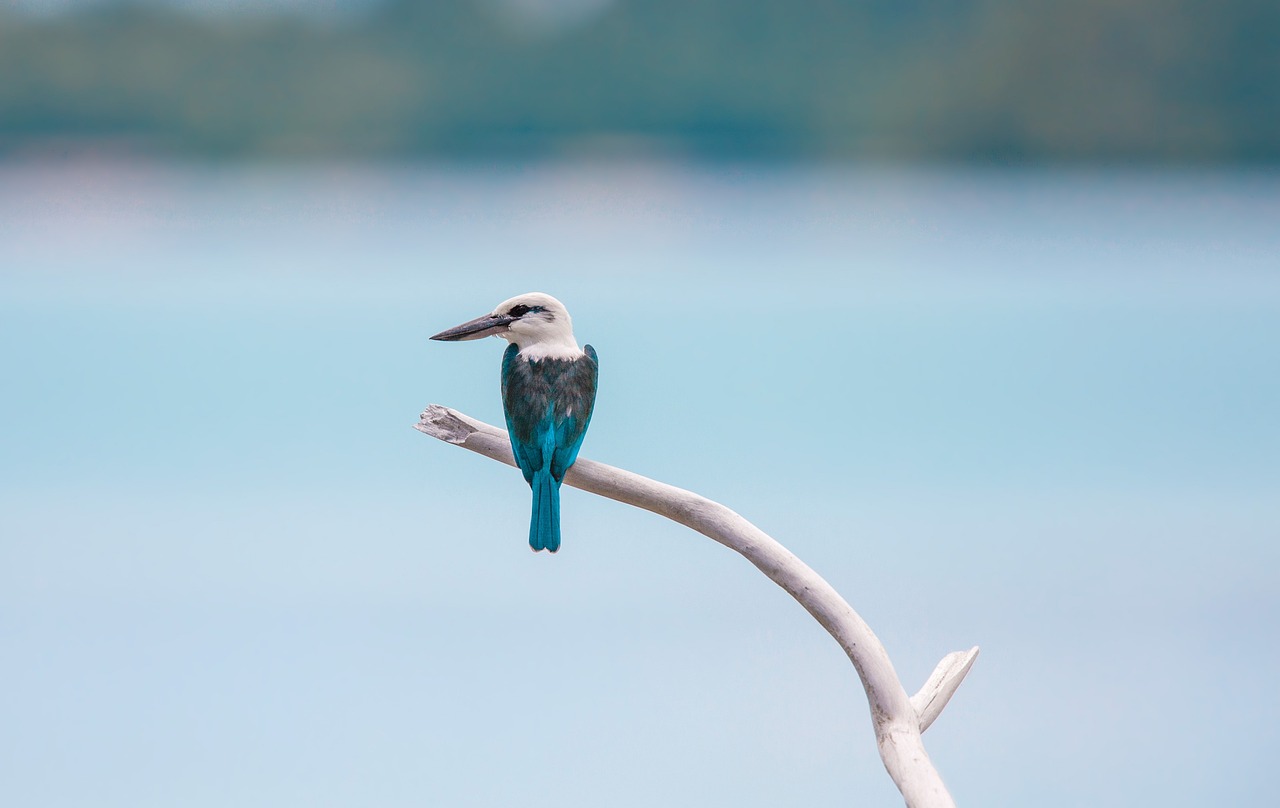Indonesia Video
Local Celebrations and Holidays: What to Expect in Indonesia
Indonesia, known for its rich cultural diversity, is a country that celebrates a wide array of local celebrations and holidays throughout the year. These festivities showcase the unique traditions, customs, and beliefs of various ethnic groups across the archipelago. From religious events to cultural festivals, Indonesia offers a vibrant tapestry of celebrations that captivate both locals and tourists alike. In this article, we will explore twelve significant local celebrations and holidays in Indonesia, providing detailed insights into each event.
1. Idul Fitri
Idul Fitri, also known as Eid al-Fitr, is one of the most important religious celebrations in Indonesia. It marks the end of Ramadan, the Islamic holy month of fasting. During this time, Muslims gather for prayers at the local mosque and engage in acts of charity. Families and friends come together to celebrate with feasts and exchange gifts. The streets are adorned with colorful decorations, and traditional delicacies like ketupat (rice cakes) and opor ayam (chicken in coconut milk) are prepared. The celebration lasts for two days, and it is a time of forgiveness, reflection, and gratitude.
- Morning Prayers: Muslims wake up early to perform special prayers known as “Salat Idul Fitri” at the mosque.
- Visiting Relatives: It is customary to visit relatives and seek forgiveness from one another during Idul Fitri.
- Open Houses: Many families open their homes to welcome friends, neighbors, and even strangers during this festive season.
- Charitable Acts: Giving back to the less fortunate is an integral part of Idul Fitri.
The faithful dress in their finest traditional attire and gather to offer prayers led by the imam.
Families travel to their hometowns or gather at the homes of their elders to strengthen family bonds.
Visitors are treated to a variety of traditional dishes and sweets, fostering a sense of community and togetherness.
Many Muslims donate money, clothes, or food to those in need, emphasizing the spirit of compassion and generosity.
Indonesia Image 1:

2. Galungan
Galungan is a Balinese Hindu celebration that commemorates the victory of dharma (good) over adharma (evil). It takes place every 210 days, and it is considered one of the most significant religious events in Bali. The celebration lasts for ten days, with the pinnacle being on the Galungan day itself. Balinese families decorate their homes with penjor (bamboo poles adorned with offerings) and prepare elaborate feasts. During this time, the spirits of ancestors are believed to visit their descendants, and prayers are offered at the family temple.
- Penjor Preparation: Prior to Galungan, families create penjor to decorate their homes and temples.
- Offerings and Prayers: Balinese Hindus prepare offerings called “canang sari” and place them at family temples and shrines.
- Traditional Dances: Galungan is accompanied by vibrant traditional dances, such as the Barong Dance and the Kecak Dance.
- Feasting: Families come together to enjoy lavish feasts during Galungan.
These beautifully curved bamboo poles symbolize gratitude and prosperity.
These offerings, made from woven palm leaves and filled with flowers and food, are presented as a gesture of gratitude and devotion.
These performances depict mythical stories and showcase the artistic talents of the Balinese people.
Traditional Balinese dishes, such as babi guling (suckling pig) and lawar (spiced meat and vegetable dish), are served.
3. Nyepi
Nyepi, also known as the Day of Silence, is a unique holiday observed by Balinese Hindus. It is a day of self-reflection, meditation, and fasting. Nyepi falls on the day after the new year according to the Balinese calendar. The entire island of Bali shuts down, and strict rules are enforced to maintain silence and stillness. No lights are allowed, and people are expected to stay indoors. This day serves as a time for introspection and cleansing before the new year begins.
- Amati Geni (No Fire): On Nyepi, Balinese Hindus refrain from lighting fires or using electricity.
- Amati Lelunganan (No Travel): No one is allowed to leave their homes or hotels during Nyepi.
- Amati Lelanguan (No Entertainment): Balinese Hindus abstain from entertainment activities, such as playing music or watching television.
- Ngembak Geni (Day After Silence): The day following Nyepi is a time for forgiveness and celebration.
They spend the day in darkness, symbolizing the absence of human activity.
The streets are empty, and even the airport suspends all flight operations for 24 hours.
The day is meant for quiet contemplation and spiritual renewal.
People gather to ask for forgiveness from one another and engage in joyful activities.
Indonesia Image 2:

4. Waisak
Waisak, also known as Vesak or Buddha’s Birthday, is a significant Buddhist celebration in Indonesia. It commemorates the birth, enlightenment, and passing away of Siddhartha Gautama, the founder of Buddhism. The main ceremony takes place at the Borobudur Temple in Central Java, attracting thousands of Buddhist devotees from around the world. Monks and followers gather to chant prayers, meditate, and perform acts of kindness.
- Procession: A grand procession, known as “Pradaksina,” takes place at Borobudur Temple.
- Candle Lighting: In the evening, participants light candles and walk in a procession around the temple.
- Offerings and Alms: Buddhists offer food, flowers, and other necessities to monks and the less fortunate.
- Prayer and Meditation: Devotees engage in prayer and meditation, seeking spiritual enlightenment and inner peace.
Monks and devotees walk around the temple, carrying Buddhist symbols and chanting sutras.
This symbolizes enlightenment and the spreading of light in the world.
Acts of charity and compassion are considered important during Waisak.
Temples and monasteries become centers of spiritual activity during this time.
5. Independence Day
Independence Day, also known as Hari Kemerdekaan, is a national holiday in Indonesia that commemorates the country’s independence from Dutch colonial rule. It is celebrated on the 17th of August every year. The day is marked by various events and ceremonies, including flag-raising ceremonies, parades, and cultural performances. Indonesians display their national pride and unity during this festive occasion.
- Flag-Raising Ceremony: The day begins with a flag-raising ceremony at the Merdeka Palace in Jakarta.
- Parades and Marching Bands: Colorful parades featuring marching bands, traditional costumes, and floats fill the streets.
- Sports Competitions: Various sports competitions are organized nationwide to promote unity and friendly competition.
- Cultural Performances: Traditional dances, music, and theatrical performances are held in communities across the country.
Government officials, military personnel, and the public gather to witness the hoisting of the Indonesian flag.
These parades showcase the diversity and cultural heritage of Indonesia.
Events such as tug-of-war, sack races, and traditional games are enjoyed by people of all ages.
These performances highlight the rich cultural traditions of different regions in Indonesia.
Indonesia Image 3:

6. Cap Go Meh
Cap Go Meh is a vibrant Chinese celebration that marks the end of the Lunar New Year festivities. It is widely celebrated by the Chinese-Indonesian community in various cities, such as Jakarta and Surabaya. The event features colorful parades, lion and dragon dances, and cultural performances. Cap Go Meh is known for its lively atmosphere and culinary delights, with street food stalls offering a wide array of Chinese delicacies.
- Parades and Lion Dances: Colorful parades take place, with lion and dragon dancers performing acrobatic moves.
- Chingay Procession: The Chingay procession showcases the vibrant culture of the Chinese community.
- Temple Visits: Chinese-Indonesians visit temples to pray for blessings and pay respect to their ancestors.
- Street Food Delights: Food stalls line the streets, offering a wide range of Chinese dishes.
These dances are believed to bring good luck and prosperity for the year ahead.
Participants carry large flags and banners, accompanied by traditional music and dance performances.
Offerings of fruits, incense, and candles are made as a sign of gratitude and reverence.
Visitors can indulge in delicacies such as dumplings, noodles, and sweet treats.
7. Kartini Day
Kartini Day, celebrated on the 21st of April, honors the life and achievements of Raden Ajeng Kartini, a prominent Indonesian women’s rights activist. This day is dedicated to promoting gender equality and empowering women in Indonesian society. Schools, organizations, and communities hold various events and discussions to raise awareness about women’s rights and the importance of education for girls.
- Women’s Empowerment Talks: Seminars and discussions are organized to address issues related to women’s rights and empowerment.
- Art and Cultural Exhibitions: Art exhibitions, performances, and cultural displays celebrate women’s contributions to Indonesian society.
- Essay Competitions: Schools often hold essay competitions where students can express their thoughts on women’s rights and equality.
- Kartini Fashion Show: Fashion shows featuring traditional and modern attire worn by Indonesian women highlight the beauty and diversity of Indonesian culture.
Experts and influential figures share their insights on gender equality and strategies for progress.
These events showcase the talents and achievements of women in various fields.
Winners are awarded prizes and recognition for their insightful perspectives.
These shows promote pride in Indonesian heritage and celebrate the achievements of Indonesian women.
8. Diwali
Diwali, also known as Deepavali or the Festival of Lights, is a significant Hindu celebration observed by the Indian community in Indonesia. It symbolizes the victory of light over darkness and good over evil. During Diwali, homes are illuminated with oil lamps and colorful decorations. Families gather for prayers, exchange gifts, and enjoy festive meals. The streets come alive with fireworks and cultural performances.
- Lighting of Oil Lamps: Oil lamps, known as diyas, are lit in homes and temples to symbolize the triumph of light over darkness.
- Fireworks and Crackers: Fireworks and firecrackers light up the night sky, adding a festive and joyous atmosphere.
- Prayers and Offerings: Families visit temples to offer prayers and seek blessings from deities.
- Cultural Performances: Dance performances, music concerts, and theatrical shows showcase the rich traditions of the Indian community.
These lamps create a warm and inviting ambiance during the festival.
Colorful displays and loud bursts of sound are enjoyed by people of all ages.
Flower garlands, sweets, and fruits are offered as a symbol of devotion and gratitude.
These performances highlight the diversity and beauty of Indian culture.
9. Paskah (Easter)
Paskah, or Easter, is a Christian celebration that commemorates the resurrection of Jesus Christ. The majority of Christians in Indonesia, both Catholics and Protestants, observe this holiday. Churches hold special services and processions, and families gather for meals and fellowship. Easter eggs, symbolizing new life, are exchanged and children participate in egg-hunting activities.
- Easter Vigil: Christians attend the Easter Vigil, a late-night service that begins in darkness and ends with the lighting of candles.
- Processions and Parades: Some churches organize processions, with participants carrying crosses or statues representing Jesus.
- Easter Sunday Service: Special church services are held on Easter Sunday, marking the culmination of the Easter celebrations.
- Egg-Hunting: Children participate in egg-hunting activities, where eggs are hidden for them to find.
During the service, the resurrection of Jesus Christ is celebrated through prayers and hymns.
The processions move through the streets, accompanied by songs and prayers.
These services focus on the resurrection of Jesus Christ and the hope it brings to believers.
Easter eggs, often made of chocolate or decorated with vibrant colors, symbolize new life and rebirth.
10. Tana Toraja Funeral Ceremonies
The Tana Toraja funeral ceremonies are unique cultural events held in the highlands of South Sulawesi. These elaborate ceremonies celebrate the life of the deceased and honor their journey into the afterlife. Funeral rituals in Tana Toraja can last several days and involve various customs, including buffalo sacrifices, traditional dances, and feasts. These ceremonies reflect the strong spiritual beliefs and reverence for ancestors in the Torajan culture.
- Buffalo Sacrifices: Buffalo sacrifices play a significant role in Tana Toraja funeral ceremonies.
- Traditional Dances and Music: Traditional dances, such as the Ma’badong Dance, are performed during the funeral ceremonies.
- Feasting: Elaborate feasts are prepared for the mourners and guests attending the funeral ceremonies.
- Rock Graves and Hanging Coffins: Tana Toraja is known for its unique burial sites, such as rock graves and hanging coffins.
Buffaloes are considered valuable offerings to accompany the deceased in the afterlife.
These dances serve as a form of storytelling and convey the spiritual journey of the deceased.
Traditional dishes, including pork and rice, are served in abundance.
These burial practices highlight the deep respect for ancestors and the connection between the living and the dead.
11. Baliem Valley Festival
The Baliem Valley Festival, held in Wamena, Papua, is a cultural extravaganza that showcases the traditions and rituals of the indigenous tribes in the region. The festival aims to preserve and promote the unique cultural heritage of the Dani, Lani, and Yali tribes. Visitors can witness traditional dance performances, mock tribal wars, and participate in various cultural activities. The festival offers a rare opportunity to immerse oneself in the rich traditions of Papua.
- Traditional Dance Performances: Colorful dance performances are held, featuring traditional costumes and music.
- Mock Tribal Wars: Participants reenact tribal wars using traditional weapons, showcasing their warrior skills and heritage.
- Archery Competitions: Archery competitions are organized, allowing visitors to test their skills in traditional hunting techniques.
- Traditional Crafts and Food: Local artisans display their craftsmanship, offering a wide range of traditional crafts and delicacies.
These dances depict stories from tribal mythology and celebrate the cultural identity of the indigenous tribes.
These mock battles symbolize the unity and strength of the tribes.
Participants use handmade bows and arrows, adding an element of excitement and cultural exchange.
Visitors can purchase unique souvenirs and savor traditional Papuan dishes.
12. Toraja International Festival
The Toraja International Festival, held in Toraja, South Sulawesi, is an annual event that celebrates the cultural diversity and natural beauty of the region. This festival attracts both local and international visitors, offering a wide range of activities and performances. Visitors can witness traditional music and dance performances, explore Torajan architecture, and participate in cultural workshops. The festival also includes a culinary showcase, where traditional Torajan dishes are offered.
- Traditional Music and Dance Performances: Colorful performances showcase the traditional music and dance forms of the Torajan culture.
- Exploring Torajan Architecture: Participants can visit traditional Torajan houses, known as tongkonan, and learn about their unique architectural features.
- Cultural Workshops: Workshops are organized to provide hands-on experiences in traditional crafts, such as weaving and wood carving.
- Culinary Showcase: The festival includes a culinary showcase, where visitors can taste traditional Torajan dishes.
Visitors can witness the unique musical instruments and graceful dance movements.
These traditional houses reflect the cultural identity and social structure of the Torajan people.
Participants can learn from skilled artisans and create their own traditional artworks.
Local chefs demonstrate the preparation of traditional recipes, highlighting the flavors and ingredients of Torajan cuisine.
References
– Idul Fitri: indonesia.travel
– Galungan: indonesia.travel
– Nyepi: indonesia.travel
– Waisak: indonesia.travel
– Independence Day: indonesia.travel
– Cap Go Meh: indonesia.travel
– Kartini Day: indonesia.travel
– Diwali: indonesia.travel
– Paskah (Easter): indonesia.travel
– Tana Toraja Funeral Ceremonies: indonesia.travel
– Baliem Valley Festival: indonesia.travel
– Toraja International Festival: indonesia.travel


